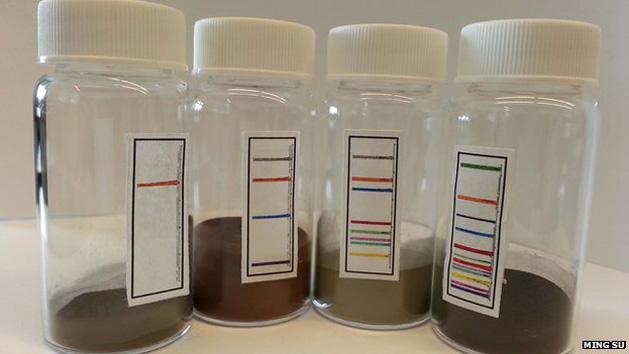worcesterpolytechnicinstitute
Latest

Spear-toting robot can guard coral reefs against invasive lionfish
Lionfish are threats to not only fragile coral reef ecosystems, but the divers who keep them in check. They not only take advantage of unsuspecting fish populations, but carry poisonous spines that make them challenging to catch. Student researchers at Worcester Polytechnic Institute may have a solution: robotic guardians. They've crafted an autonomous robot (below) that can hunt lionfish without requiring a tethered operator that could harm the reefs.

Scientists want to fight the Ebola outbreak using robots
Outbreaks of lethal viruses like Ebola are bad enough by themselves, but they're made worse by having to send in aid workers -- these people can quickly become victims, no matter how careful they are. To eliminate that risk, both the White House and a trio of educational institutions are holding workshops on November 7th where scientists will discuss using robots to tackle the current Ebola crisis. The goal is to minimize physical contact whenever possible while keeping patients and families in touch. At a basic level, they'd like machines to disinfect areas and deliver supplies. Telepresence robots, meanwhile, could both let people visit patients without putting themselves in danger.

Nano barcodes can trace bombs even after they've exploded
You may not pay much notice to product trackers like barcodes and RFID tags, but they're absolutely vital in some fields; they cut back on bootlegging and help police determine the origins of bombs. Worcester Polytechnic Institute may have just delivered a major breakthrough, then, by developing nanoparticle barcodes. The minuscule tracers identify an object by producing a unique thermal signature (those colored lines you see in the photo) when they reach their melting point. As they don't participate in any chemical reaction, you can integrate them into any item and get a positive ID whenever you like, even if you're dealing with exploded TNT.

Boston creates app to report road problems
Since moving to LA, I haven't quite had to deal with the potholes that Spring in Chicago usually brings (not that roads are any better out here, but at least they don't have to deal with all of the freezing and thawing). But despite the yearly flat tires and ruined alignments, Chicago hasn't gone quite as far as Boston, where the city government has developed not one but two apps to enable its citizens to report on potholes and other city issues. Citizens Connect is an app developed late last year by the city that enables locals to report graffiti, potholes, broken streetlights, and other urban issues in the Boston area, and now they're working on a new app, nicknamed BUMP (for Boston Urban Mechanic Profiler), that will automatically transmit road conditions to a central database using the iPhone's accelerometer and data connection. That seems tough to do with all of the extra noise that must come from an accelerometer, but they are working with a researcher from Worcester Polytechnic Institute, so maybe they will be able to pull it off. Interesting to see metropolitan areas like this using newer technology to keep an eye on what's up in their city. Of course, actually fixing the potholes will take a little more work, but knowing what's wrong is helpful.
